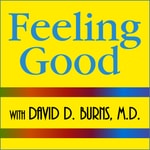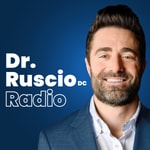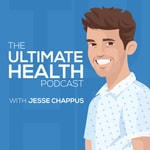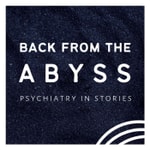Feeling Good Podcast | TEAM-CBT - The New Mood Therapy – Details, episodes & analysis
Podcast details
Technical and general information from the podcast's RSS feed.

Feeling Good Podcast | TEAM-CBT - The New Mood Therapy
David Burns, MD
Frequency: 1 episode/7d. Total Eps: 471

Recent rankings
Latest chart positions across Apple Podcasts and Spotify rankings.
Apple Podcasts
🇨🇦 Canada - mentalHealth
24/07/2025#83🇨🇦 Canada - mentalHealth
23/07/2025#52🇨🇦 Canada - mentalHealth
22/07/2025#42🇺🇸 USA - mentalHealth
22/07/2025#96🇨🇦 Canada - mentalHealth
21/07/2025#29🇨🇦 Canada - healthAndFitness
21/07/2025#78🇨🇦 Canada - mentalHealth
20/07/2025#81🇨🇦 Canada - mentalHealth
19/07/2025#69🇨🇦 Canada - mentalHealth
18/07/2025#59🇨🇦 Canada - mentalHealth
17/07/2025#80
Spotify
No recent rankings available
Shared links between episodes and podcasts
Links found in episode descriptions and other podcasts that share them.
See all- https://maps.org/
120 shares
- https://hopkinspsychedelic.org/
35 shares
RSS feed quality and score
Technical evaluation of the podcast's RSS feed quality and structure.
See allScore global : 52%
Publication history
Monthly episode publishing history over the past years.
412: Ask David: Give-Get Imbalance; Best Anxiety Treatment; Externalization of Voices; and more
Episode 412
lundi 2 septembre 2024 • Duration 01:05:12
The Feeling Great App is now available in both app stores (IOS and Android) and is for therapists and the general public, and you can take a ride for free! Check it out at FeelingGreat.com!
What's a Give-Get Imbalance? What's the Best Treatment for Anxiety and Dysthymia? Can you do Externalization of Voices on Your Own?The show notes for today’s podcast were largely written prior to the show. Tune in to the podcast to hear the discussion of these questions by Rhonda, Matt, and David.
And keep the questions coming. We enjoy the exchange of ideas with all of you. Thanks!
- Suzanna asks: What’s a “Give-Get” imbalance? And how can you get over it?
- Martin asks: What’s the best treatment for anxiety and dysthymia?
- Eoghan (pronounced Owen) asks: Can you do Externalization of Voices on your own?
1. Suzanna asks: What’s a “Give-Get” imbalance? And how can you get over it?
Description of Suzanna’s problem.
Suzanna is a woman with a grown daughter with severe brain damage due to a severe brain infection (viral encephalitis) when she was an infant. Suzanna was constantly giving of herself and catering to her daughter. She explains that her daughter can be very demanding and throws tantrums to get her way, and kind of controls the entire home in this way.
She can only talk a little and has the vocabulary of about a two-and-a-half-year-old. She can mostly express the things she wants or doesn`t want on a very basic level. She mostly understands what I want from her, but mostly does not want to do what I ask her to do. She can be very stubborn. And I cannot reason with her because she has her own logic and, in her eyes, only her logic is valid. Maybe all a little bit like a two-and-a-half-year-old.
Suzanna struggles with negative feelings including guilt, anxiety and depression, because she is constantly giving, giving, giving and feeling exhausted and resentful. And she tells herself, “I should be a better mum.” Can you spot any distortions in this thought?
Put your ideas in the text box, or jot them down on a piece of paper, and then I’ll share my thinking with you!
What are the distortions in the thought, “I should be a better mum”?
There are many distortions in this thought, including All-or-Nothing Thinking, Overgeneralization, Mental Filtering, Discounting the Positive, Magnification and Minimization, Emotional Reasoning, Self-Directed Should Statements, and Self-Blame. There may be one or two more, too!
The first step in change nearly always includes dealing with motivation and resistance. Suzanna decided to do a Cost-Benefit Analysis, as you can see below, and a revision of her Self-Defeating Belief, as you can see below.
Another helpful step might include “No Practice,” which simply means saying “no” so you don’t constantly get trapped by “giving,” as well as “giving in.”
A third critically important strategy involves the mom and dad making the decision to work together as a loving team in the management of a troubled child, rather than fighting and arguing with each other, as we've discussed on previous podcasts. However, in many, or possibly most cases, the parents are not willing to do this. They are more concerned about being "right" and so they continue to do battle with each other, as well as the child who needs a more loving structure.
David
Cost-Benefit Analysis Self-Defeating Belief: I should be a better mum to my daughterAdvantages of this belief
(How does believing this help me?)
Disadvantages of this belief
(How does believing this hurt me?)
This thought motivates me to:
- Put myself out.
- Push myself to give what I have.
- Find ways to advance her development. Find ways to involve her in everyday life.
- Invest myself into her and her life as much as I can, physically, emotionally and time wise.
- Try to find ways that my daughter can have a fulfilling life.
- Try hard to connect to her, her pain, her needs, her sadness and her frustration.
- Try to make her life as easy as possible.
- Try my hardest to see her world through her eyes and gain deeper understanding of how she feels.
- Try to understand what is upsetting her when she throws a tantrum.
- Stay healthy and fit to have energy for her.
- Try to make her life rewarding and meaningful.
- Fulfill my duty as a mum to my daughter who needs my support.
- I can feel good about myself.
- I satisfy other people’s expectations of me.
- Protects me from criticisms from my husband
- I am a prisoner to my daughter.
- No matter how hard I try I don`t seem to make a meaningful difference to her life and to her development.
- I am a “Siamese Twin” to her. I cannot move or do anything if she doesn`t want to.
- I reason with my emotions instead of thinking rational at times.
- I let my daughter get away with “murder”.
- I find excuses for her behaviour.
- I find excuses for her why she cannot behave differently.
- I beat up on myself when I feel I failed her.
- I take all responsibilities away from My daughter and make them my own.
- I blame myself when I cannot motivate her to do something.
- I blame myself when she is bored and unhappy.
- I feel guilty doing my own things.
- I feel guilty when I do not involve her in my activities.
- I feel guilty when I expect her to do entertain herself for a while.
- I cannot live my own life.
- I cannot be myself at times.
- She rules my life, and she lives my life.
- I feel trapped and frustrated.
- I feel I need to constantly entertain her.
- I feel responsible for her happiness.
- I feel responsible when My daughter is sad and frustrated.
- I feel exhausted and overwhelmed at times.
- I feel unhappy and unfulfilled.
Advantages: 20 Disadvantages: 80
Semantic Method: Re write your personal value
I want to be a mum to My daughter and help her along and invest myself into her. But I also want to treat myself the way I treat her. She has a “right” to live a happy and fulfilling life, but so do I. Our needs and desires are equally important and deserve the same attention and care. I can only continue to look after My daughter well if I look after myself too and take myself and my needs and desires as seriously as I do hers. There needs to be a give-get balance so that both of us can be healthy and happy and stay healthy and happy. I want to help her to slowly take new steps into independence and support her lovingly along the way.
2. What’s the best treatment for anxiety and dysthymia?
Hello Dr. Burns,
What method of treatment would you suggest for GAD and dysthymia? 3rd wave CBT, ACT? What is best based on science?
Can you recommend some books please?
thank you
Martin
David’s Reply
My books are listed on my website, FeelingGood.com. They all describe my approach, which is a bit like CBT on steroids. But every patient is treated individually and uniquely, following a structured and systematic approach that facilitates rapid and dramatic change.
I don’t recommend “methods of treatment” or “schools of therapy” based on so-called “diagnoses,” but treat the individual with TEAM. Every session with every patient is an experiment, with precise measures at the start and end of every session.
The new Feeling Great App, now available, gets a mean of 50% or more reductions in seven negative feelings, such as depression, anxiety, and more, in 72 minutes of starting to use the bot. You can check it out for free! Anxiety and depression often co-exist, and the app targets both.
My book, When Panic Attacks, describes my approach to anxiety, based on four models of treatment: the Motivational, Cognitive, Exposure, and Hidden Emotion Models. If you use the search function, you can find podcasts describing those models. Also, there's a free anxiety class on this website.
Thanks, Martín, for your excellent question!
Best, david
3. Can you do Externalization of Voices on your own?Hi David,
Long time listener of your great podcast and huge fan of your book Feeling Great.
I’ve often heard you mention that “externalization of voices” is one of, if not the most powerful CBT techniques. I am just wondering if it is still almost as effective when done solo without a therapist i.e. the person takes on both the roles of positive and negative by recording themselves talking or similar?
Also, have you any data comparing the efficacy of TEAM CBT work carried out solo using Feeling Great/your podcast as a guide vs. TEAM CBT performed with a trained TEAM therapist?
I am very much looking forward to the Feeling Great app launch in the UK as hopefully that will be a much more effective way to do personal work without a therapist.
Many thanks,
Eoghan (pronounced Owen)
David’s reply
Thank you, Eoghan! Appreciate your support and thoughtful question.
I don’t have any data on the use of EOV on your own. One could use a recording device, like your cell phone, and record your negative thoughts in second person, “you,” and try to defeat them when you play them back, one at a time.
But in my experience, people nearly always need an experienced role player to do role reversals to show them how to get to a “huge” win. People almost never get a huge win when doing it for the first time, because the therapist (in the role of positive self) can model unfamiliar strategies for the patient.
Generally, a hugely successful response involves a combination of self-defense, self-acceptance, and the CAT, or counter-attack technique. And sometimes other methods as well, like Be Specific, for example
Radical new learning is definitely the key to success with EOV.
Now, thanks to the app, everyone can practice, since we’ve trained our Obie Bot to role-play with users, do role reversals, give feedback, and so forth.
Great question that I will include in the next Ask David if that’s okay!
We are also exploring the combination of the Feeling Great App plus a trained TEAM therapist from the Feeling Good Institute in Mountain View, California.
We are hoping that 1 + 1 may equal 3. Wouldn’t that be awesome?
What I’ve found when doing research is that the results are virtually always wildly unexpected! Somethings come out great, and some things come out dismally. I always tell myself that “the Lord giveth, and the Lord taketh away!”
Seems to be the rule in research! Especially when you’re wanting to be guided by the truth, and not so much by your hopes and expectations.
Best, David
411: Ask David: What’s Self-Esteem? What’s Self-Acceptance? Do We "Need" Them?
Episode 411
lundi 26 août 2024 • Duration 57:56
In today’s podcast we address six common questions about self-esteem, including:
- What is Self-Esteem?
- How does it differ from self-confidence?
- How does it differ from self-acceptance?
- What’s the difference between conditional and unconditional self-esteem?
- What’s the best way to develop self-esteem?
- What do you mean when you say that once you develop unconditional self-esteem, you should get rid of it as fast as possible?
Please keep the questions coming. We enjoy the exchange of ideas with all of you. Thanks!
Brandon Vance and Heather Clague begin today’s show with a pitch for their upcoming Feeling Great App Group, an 8 week experience that will begin in September. If you use the Feeling Great App, or plan to get it, this group would be an inexpensive and incredible enhancement, so you can meet with like-minded people once a week to schmooze, practice the techniques in the app, and get your questions answered by compassionate and personable experts.
For more information go to www.FeelingGreatTherapyCenter.com/appgroup.
Feeling Great App Group Sept-Nov 2024Led by Brandon Vance MD and Heather Clague MD, meets online for 80 minutes for 8 weeks, offered Mondays 4-5:20pm Pacific Time, September 23rd - November 11th. Cost is $12 per session ($96 total) plus the cost of the app ($99 per year after 7 day free trial). Sliding scale for both the group and the app are available. No one turned away for lack of funds.
Feeling Down? Try the Feeling Great App for Free!It's now in the IOS and Android app stores, and you can check it out for free. It's works super fast. Let us know what you think! Thanks!
Rhonda, Matt, and David appreciate your support. Keep your questions and testimonials coming. They mean a lot to us!
402: Ask David: Unfairness; Erasing Depression with Lasers; TEAM in the UK; Most Powerful Technique
Episode 402
lundi 24 juin 2024 • Duration 01:12:46
We have lots of great questions today. The answers in the show notes were written prior to the podcast, and the answers in the live podcast as we discussed these questions may differ somewhat or amplify the written materials in these show notes.
We love your questions. Remember to send them to [email protected].
Special Announcement Attend the Legendary Summer Intensive Featuring Drs. David Burns and Jill Levitt August 8 - 11. 2024 Learn Advanced TEAM-CBT skills Heal yourself, heal your patients First Intensive in 5 years! It will knock your socks off! Limited Seating--Act Fast Click for registration / more information!Sadly, this workshop is a training program which will be limited to therapists and mental health professionals and graduate students in a mental health field Apologies, but therapists have complained when non-therapists have attended our continuing education training programs. This is partly because of the intimate nature of the small group exercises and the personal work the therapists may do during the workshop. Certified coaches and counselors are welcome to attend.
But there's some good news, too! The Feeling Great App is now available in both app stores (IOS and Android) and is for therapists and the general public, and you can take a ride for free! Check it out!
Today’s Questions
- Kiernan asks about “unfairness” and the connection between worthwhileness and achievement.
- Brittany asks: Can you “erase” feelings of sadness and depression by shining lasers in the patient’s eyes?
- James asks about the use of TEAM methods in the NHS in the UK
- Brian asks: Is positive reframing the most successful technique you have used with your patients?
Hi David and Ronda, and if Matt is on
I have been listening to your wonderful podcast for about the last 3 years as I drive to work. It has really opened my eyes about how your thoughts create your interpersonal reality. Loved the podcasts on jealousy addiction, perfectionism, achievement addiction and many more.
My questions would be: What about if someone wants to achieve more but it isn't based on worthwhileness? They would buy and own things that they happen to like and not to impress others.
Let's say they wanted to be able to afford a nice house, healthier higher quality food and water. As the quality does have an effect on health especially in the US as the regulations are not the greatest.
However, the fact that they couldn't afford to buy these upsets them? Thoughts: 'It's not fair that I can't afford quality food but there are millionaires that will have access to better food, lifestyle which has an effect on overall health and longevity'
Or if someone has to pay for unexpected expensive dental treatment.
Thoughts: 'It's not fair that I have to pay £14,000 for this treatment'. 'It should be more affordable to lower income households, as it is essential to have functional teeth'
I hope I have explained this well, I would love to hear your thoughts. Keep doing what you are doing and all the best.
Kieran
David’s response
Sure Kieran, if you like I will make this an Ask David question for a podcast. LMK if that’s okay, and if it is okay to use your first name.
Great question, and has to do with the theme of acceptance: should I or shouldn’t I?
Here are the quick versions, but we can discuss in more detail on the live podcast. First, I do not find it useful to base my worthwhileness on my achievements or on my failures. I do work hard and like creating things that are helpful to people, and I enjoy earning money to support my family. I can be motivated to work hard to get things we want or need, but I don’t base anyone’s worthwhileness on how much money they have, or anything, to be honest.
In fact, I could also easily accept wanting to buy something really cool, not just because I like it, but because it might impress others, or because they might find it fascinating, too! I don’t try to regulate my life with a lot of shoulds and shouldn’ts, and find that I am happier and more peaceful without lots of shoulds.
In the Feeling Great App I have created a class called “Your PhD in Shoulds.” You might enjoy it!
Second, you can say that it is unfair that some people have more money and resources than other people if you like. And you have every right to feel angry if that’s what you want, as well.
Acceptance is more of a decision than a technique. Take the fact that lions kill deer when they are hungry. You can say, “they should not do that. It’s unfair!” But that won’t stop a hungry lion.
You don’t have to LIKE seeing a lion kill an innocent deer, but you can accept it. Again, that’s a choice. The behavior of a lion is dominated by millions of years of evolution. Humans are no different.
One thing that sometimes helps is to make a list all the REALLY GOOD reasons NOT to accept the “unfairness” in the world. I’ll bet you could come up with at least ten to fifteen strong reasons.
Then you can ask yourself, “Given all those good reason NOT to accept the fact that some people have more and some people have fewer resources, maybe I should just stay good and angry! Why in the world would I want to change?”
Also, when you find an injustice, you can use your energy being good and angry, and complain about it, or you can use your energy to do something about it. Or, you can also work to change yourself, instead of complaining about the world.
I also have a new class on acceptance. It’s called, “Accept this shit? Hell NO!” You might like it as well.
I am babbling so will stop.
Warmly, david
2. Brittany asks: Can you “erase” feelings of sadness and depression by shining lasers in the patient’s eyes?
Hi David,
My husband’s boss was telling him she’s going to be doing some laser therapy to “cure” her depression. She had to undergo 9 hours of testing to see if she’d be a candidate.
Apparently, they plan to shine lasers in her eyes to “erase” her sadness.
Obviously, I assume this is a load of garbage. But have you ever heard of such a thing? Is this just hypnosis?
Best, Brittany
David’s ReplyHi Brittany,
Probably. As they say, follow the money! There is a placebo effect if you believe something will help, so tons of garbage gets served up as costly gourmet food.
You can read up on this on the internet I suspect. Let me know what you learn!
Best, david
Brittany responds to DavidLove your answer! I was looking into it and read they use a cold laser in the eyes which allegedly releases endorphins. I already know from you that just like with exercise and that study about the endorphin blockers, it made no difference. People just feel better because they think they are doing something good for their body by exercising.
They also allege that the lasers aid damaged neurological tissue. They claim it has helped many patients but there is no data backing it up that I see.
They really lost me when I read that lack of activity, stress, and maternal deprivation cause depression in the first place.
Thanks! Brittany
David addsAs it turns out, I know two laser experts who are regulars on my Sunday hikes. Dr. Alexander Makowski is a brilliant scientist who is involved in the research and development of lasers and their marketing. Here is his email, along with some terrific links to articles about the hype of “low light lasers.”
Hope you enjoy the email and links from Alex:
Hi David,
I'll chime in too! From a different angle.
Zak knows some great doctors who are doing real work, but the general field of low-level laser/ light therapy (LLLT) for medical issues has been fraught with charlatans for some years.
(David note: Zak is a laser expert at the Stanford Medical School and is currently preparing a blog on the topic of LLLT. I will include a link to her blog when it is published, likely in a couple weeks. She is awesome and also often joins our Sunday hikes!)
Dr, Alex Makowsy continuesGood work by Tiina Kaaru (https://www.spiedigitallibrary.org/profile/Tiina.Karu-8010) and Juanita Anders (https://www.usuhs.edu/profile/juanita-anders-ms-phd) on mechanisms behind using light to stimulate our mitochondria or deactivate infectious bacteria are well documents
However, the good work done by the few was overshadowed and worse, was perverted for many years into crackpot devices using bad stats and poorly designed studies. Or sometimes just straight preying on vulnerable people. It is the great shame of the laser industry. Worse yet, some of these devices were actual lasers that led to people getting hurt.
I can't recommend in good conscience that lasers be shone into eyes at any time other than diagnostic devices meant to diagnose the eye itself. It may be that some day soon a good scientific body of evidence changes my stance but not yet...
The story starts in the origin of my journey into light and lasers. I got involved in this field in 2005 while taking an elective class on optics and lasers when I got a call from my mom that she was seeking a laser therapy for her fibromyalgia.
My mother's desire to get her fibromyalgia treated with a "cold laser" pulled me into this field since I was taking a class with a professor who later became my doctoral mentor. A full semester of my free time disappeared as I tried to source out of print articles and do a deep dive on whether this was real or garbage.
A research term paper and a conference visit later I could finally see the same trends you saw with medication. I talked her out of the potentially dangerous unproven device usage.
[As you may have suspected, In fact my mom was having significant issues in her marriage and life and a very good doctor set her straight. My mom divorced and is now happily remarried, about 95 pounds lighter, no fibromyalgia or serious insomnia. If only we had known you back then she would have recovered in a session or two rather than 3 years]
However, in the process, I dug into some of the real research that small doses of light can affect our bodies in ways we don't understand fully due to lack of research.
Fast forward several decades and some of the best researchers survived the public scandal of LLLT and found a scientific mechanism (cytochrome c oxidase activation) to explain observed changes in mitochondrial activity. However, the scientists don't claim to cure everything or anything. Then they published this mitochondrial activation and suddenly:
This, of course, proves that blogablum does in fact exist and now the truth about the panacea is available for all!!
David note: “blogablum” is a fake nonsense word I made up that refers to nothing meaningful. Now continuing with the Alex email:
This is a good review of the history and current evidence about it : https://www.mcgill.ca/oss/article/medical-critical-thinking/hype-around-photobiomodulation
But if you want the real goods, the hard truth about cold lasers has been out there for over 15 years:
Introducing the New Low Level Laser Treatment!
The following search on YouTube will reveal the secrets of the universe:
"cold laser before:2009"
Warmly,
Alexander J Makowski, Ph.D.
Dr. Matt May’s replyHi David,
Thank you for forwarding this question to me. I am very concerned and wonder if this may fall under the category of 'malpractice'.
For one, I am unaware of any FDA approved treatment for depression that involves shining lasers into people’s eyes to erase their sad memories. For a list of FDA approved treatments for depression, you could refer to:
https://www.ncbi.nlm.nih.gov/books/NBK559078/
It's possible that there is new evidence I'm not aware of, but I searched online for studies of light in treatment of depression and was unable to find any placebo-controlled trials. This is a problem because placebo responses can be so high in the case of depression and anxiety. There were some studies on light therapy, but nothing fitting the description of 'shining lasers into eyes to erase sad memories'.
Other concerns I have relate to the high cost of such an extensive “evaluation”, as well as possible risk of shining lasers into someone’s eyes. In the absence of evidence supporting the treatment, it seems like a high cost, and potential risk, to the patient, hence my concern for malpractice.
It's pretty common for people with depression to feel a sense of desperation, especially after many failed efforts to address their symptoms. This group of individuals are likely to be extremely susceptible to scams and purveyors of 'snake oil' (sham treatments).
It's also concerning to me because the theory behind the idea of shining light into people's eyes to erase sadness doesn't make logical sense to me. It's a potentially-testable hypothesis, but it's such an absurd hypothesis that I don't see it as worth testing or entertaining.
If we are defining depression as some combination of worthless, hopeless, ashamed and guilty feelings, then the hypothesis that such feelings could be meaningfully addressed by such a crude instrument as a laser or a pill or an electrical impulse is absurd.
This is because our feelings arise from our thoughts/perceptions. I've never met a single person or patient who was suffering from depression but had healthy positive thoughts about themselves. I've also never met someone who had patterns of negative thinking, but felt fine, up-beat and positive.
The idea that a pill, a laser, a magnetic pulsation or electrical current could selectively alter the specific thoughts that cause depression doesn't make sense with what we know about the brain and thoughts and feelings. How could a pill, for example, which crosses the blood-brain barrier and impacts every neuron in the brain, selectively target only the neurons that give rise to depressed thinking? It's like imagining that we could carpet-bomb a city but only kill the murderers and rapists.
I'd encourage all potential clients who are receiving treatment for depression or other conditions to ask their providers for literature that documents the effectiveness of the treatment and to get a second opinion if they are unsure.
These are my 2-cents on the topic and I could be completely wrong about it all. Hoping to hear from others what they think.
Also, David, I saw several other people included in the invitation to respond to this question but I didn't see them cc'd. Perhaps they were bcc'd?
Wishing you the best,
fondly,
Matt
David’s reply to MattThanks, yes, I have a fantastic response already in the show notes from Dr. Alex Makowski who does research and development of lasers with valid medical applications. His thrust is similar to yours.
Our field is littered with junk “scientism” intended to fool and exploit people, similar to the snake oil salespeople who use to go from town to town in America selling magical “elixirs” that “cured” just about everything!
But people are endlessly gullible, and con artists are still in endless abundance these days, it seems!
Best, david
Will add your kind and thoughtful comment to the show notes!
3. James asks about the use of TEAM methods in the NHS in the UK.
Hi Rhonda,
I hope you are well. I had a couple of questions for an 'ask David' on the podcast if that's okay. A bit of background....
I am Level 1 Team and have attended David's training in Atlanta. I live in the UK and have recently changed career to work in the NHS delivering CBT interventions for patients because David's work inspired me so much.
The NHS uses specific interventions for particular diagnoses and because I am in training I have to try and stick to this. I do use the TEAM materials and approach when I can and have already seen some great results.
The NHS uses 'Behavioural Activation' for certain patients with Depression and I just wondered what David thought about the effectiveness of this (perhaps compared to Cognitive Restructuring). I believe Beck introduced this into the CBT model as he thought it was useful.
Another question was regarding treatment of GAD and whether dividing worries between hypothetical and practical, and then using a certain time to actually worry rather than letting the worries dominate throughout the day was something he thought was useful or had heard about.
Thanks so much for all the great work you are all doing and inspiring people all over the world!
Kind Regards James Bibby.
David’s responseHi James,
Thanks for the great questions. In today’s recording of an upcoming Ask David podcast, we can address:
-
- The history of “Behavioral Activation,” including the pros and cons of this approach.
- The history and pros and cons of “Worry Breaks.”
- The idea of matching a “technique” to a “diagnosis,” as opposed to learning to treat the whole patient with TEAM.
- The results of our latest research with the Feeling Great App, and whether it might have some value for patients struggling with depression and anxiety disorders in the UK.
Best, David
Matt’s Thots:Great question! I’m looking forward to discussing.
There are certainly some techniques that are more effective, than others, for addressing specific negative thoughts. Meanwhile there are a number of problems that come up when we are, as clinicians, throwing solutions at diagnoses, rather than treating the human being who is suffering.
Studies on the treatment of PTSD at the VA, for example, showed veterans often got worse after this approach, in which their diagnosis was matched with a method, ‘prolonged exposure’, without any agenda-setting. This just retraumatized lots of veteran!
Similarly, if someone is secretly blaming, and haven’t experienced the ‘death of the blaming self’, they might be assigned ‘communication skills training’, only to see this backfire, because their intent is still to try to change someone, rather than accept them.
You might tell a patient with depression that they should go exercise, only to cause them to resist you, ‘you don’t understand, I can’t even get out of bed!’. In short, most therapy fails or even makes patients worse because it doesn’t consider the good reasons to continue to blame, give up, criticize ourselves, etc.
4. Brian asks: Is positive reframing the most successful technique you have used with your patients?I can see how it would cure someone in 2 hours!
Feel free to use my question and do and use my name if you wish. I'd be honored.
Best,
Brian
David’s replyHi Brian,
Thanks. Great question! It’s one of the latest powerful techniques, but Ext of Voices might still be the “champion.” Using them in the T, E, A, M sequence is especially powerful. Positive Reframing often gets them closer, but not quite all the way to enlightenment.
Externalization of voices (EOV) often gets them over the finish line, especially if you know how to use it skillfully, incorporating Self-Defense with the Acceptance Paradox and Counter-Attack Technique! In fact, you can incorporate many of my > 100 techniques when using EOV, such as Be Specific, Semantic Technique, Examine the Evidence, and a host of other.
Best, david
Matt’s commentsI agree, Positive Reframing and Externalization of Voices are incredibly powerful and it’s often what we’re doing when we see recoveries. What works for a given individual, however, is quite hard to predict, in advance and there’s a ‘process’ to therapy, such that we can’t really skip steps, except in some unusual circumstances.
Some other super-powerful methods include Externalization of Resistance, Double Standard, Flooding, Feared Fantasy, and the Hidden Emotion Technique. I’m probably forgetting some.
Thanks for listening today!
Matt, Rhonda and David
313: Ask David: Featuring Matthew May, MD
Episode 313
lundi 10 octobre 2022 • Duration 50:49
"
1. Rhonda asks: How can you respond to someone who yes-butts you? 2. Thomas asks: Do we have a self? Does God exist? 3. Thomas also asks: Ellis said we should upset ourselves over someone else’s problems, but how about Putin, and Russia? Note: The answers below were generated prior to the podcast, and the information provided on the live podcast may be richer and different in a number of ways. 1. Rhonda asks: How can you respondto someone who yes-butts you? David’s Reply Thanks, Rhonda. We can demonstrate this with Matt on the podcast recording later today! Matt’s Reply: The answer is to fall back to Empathy and try to see how we are creating the problem. For example, when we are giving advice, we may have fallen into a trap, in which we are getting ahead of their resistance and would want to get behind it. As often happens, the question, and its answer, went in an unexpected direction. Rhonda, like many therapists, noticed that one of her social anxiety patients was subtly resisting exposure—facing her fears. Matt and Rhonda model how to respond to patients who keep putting off the exposure. This answer illustrates how therapists and the general public alike can improve your use of the Five Secrets of Effective Communication (LINK) with the use of “Deliberate Practice,” with role reversals and immediate feedback on your technique. Rhonda starts with a low grade, and then rapidly achieves an A grade! Click here for the Five Secrets of Effective Communication 2. Thomas asks: Do we have a self? Does God exist? Thank you for giving me your time and attention. I appreciate it, even if we don't agree. I have talked about whether or not God and the self exist. David Hume made the argument about not having a self, only perception. Of course, questions arise if we don’t have a “self.” Thomas Thomas also comments on Nathaniel Brandon: Why do we use the words who? Him? Her? He she they.?? I certainly don't believe Nathaniel Brandon’s horseshit. He talks about a teenage self, a father self, and a child self And all that is just horseshit. But do we have any self? David’s response: Hi Thomas, Thanks for your question! You ask, “But do we have any self?” You ask about God, too. People have been asking for my chapter on the “Death of the Self,” and my efforts to debunk the idea of a “self.” I have not had the time and motivation to bring that chapter back to life, since it is so hard for people to “get” what I’ve been trying to say, which is exactly what Wittgenstein and the Buddha were trying to say. But I will try to share one idea with you, in the hopes that it might make sense. As I have previously suggested, these questions about some “self” or “God” have no meaning. For example, how about this question: ‘What would it look like if someone had no ‘self?’ What, exactly, are we talking about? I know what this question means: “So you think Henry is too high on himself.” This means that we think some person named Henry is arrogant or narcissistic, something like that, and we want to know if someone agrees with us. I understand this question, it makes sense. There is a distinct difference between people who are quite humble and folks who are overly impressed with themselves. So, we are talking and using words in a way that has meaning and makes sense. However, I cannot answer the following question because it does not make any sense to me: “Does Henry have a ‘self’?” So, this question, to me, is language that is out of gear, like a car in neutral gear. No matter how hard you press on the accelerator, it will not move forward or backward. If you cannot “see” or “grasp” the difference between my examples of a meaningful question and a nonsensical non-question, that’s okay. In my experience, few people can grasp or “get” this. But to me, the difference is quite obvious. Is it okay if I use your email as a somewhat edited “Ask David?” I can change your name if you prefer. I don’t think people will “get” my answer, but hope springs eternal! David Matt’s Response Many brilliant minds have addressed this question in more eloquent and thorough ways than I could, including the Stanford-trained neurologist and philosopher, Sam Harris, in his book, ‘Free Will’ and Jay Garfield in his book, ‘Losing Ourselves’ There’s very little I can say, about this topic, that hasn’t been said more eloquently by individuals like these and many others. Meanwhile, I’m glad that this question has arisen on the podcast because I see clinical utility in the implications of this question, including in the treatment of depression, anxiety, anger, narcissistic pride and relationship problems. For example, I might be thinking, ‘I’m so mad at my (bad) self for eating all those cookies’. Or, I’m so proud of myself for making a million dollars’. I might start to think I deserve more, because of my special self and feel superior and angry, ‘that persons (bad self) shouldn’t have cut me off in traffic!’. When we take the ‘self’ out of the equation, we realize that these thoughts don’t make sense. If our brains are just following the laws of physics, without any self, jumping in there to influence the process, then we couldn’t have done differently, with the brains we had, and neither could anyone else. Hence, the idea that people have ‘selves’, which can be good or bad, make decisions and the like, is a setup for suffering. In the cookie example, I would have to train my brain, through practice with therapy methods, to develop a different set of habits, rewiring of my brain, to reach for a salad rather than a cookie. I can’t simply insist that my ‘self’ rewire my brain for me. I’d have to practice and do my TEAM therapy homework! Anger and Narcissism are some of the hardest-to-defeat problems. However, realizing other people are simply doing what their brains are programmed to do, takes away the anger and blame. Just like we wouldn’t hold a grudge for years against a wild animal that bit us, we could also forgive and accept a person who bit us. and we can’t feel unnecessarily superior or proud of our ‘self’ if we accomplish something wonderful, because we don’t’ have a ‘self’ that did those things, just a brain and the right environment, neither of which we can take credit for. This approach is called ‘reattribution’ in TEAM, which is useful for defeating ‘self-blame’ and ‘other (self) blame’. Here are some other methods to leverage the no-self concept and free your mind of this hazardous way of thinking: 1. Experimental Technique: Try to define what a ‘self’ is. Then conduct an experiment to see whether the self is capable of doing the things you think it can do. For example, can your ‘self’ stop understanding the words you are seeing on this page? Or does your brain helplessly decipher the shapes of these letters into meaningful sounds and language? Can your self exert its free will to decide to focus exclusively on one thing for one minute, like your breath or a point on the wall? It can’t. If your self can’t do such simple tasks, what can it do? One can see meditation as a kind of ‘experiment’ to see whether our ‘self’ is calling the shots, using its free will, or if our brains are just doing what brains do. 2. Socratic Questioning: You can ask questions that can’t be answered to show that the ‘self’ is more like a ‘unicorn’ than a cat. For example, how big is the ‘self’? What’s it made of? Where is it located? Can you see it on a MRI? No radiologist has ever visualized a ‘self’ and you probably realize you can’t answer these questions, any more than you can, ‘what do Unicorns like to eat?’, bringing us closer to understanding that it’s probably a made up thing. 3. Examine the Evidence: What evidence is there that there’s a Self? What evidence is there that there is no self? On the latter side, Consider Occam’s Razor, which suggests that the better hypothesis is the simpler one which still explains the observations. One hypothesis is we have a brain generating consciousness. Another hypothesis is that we have a brain that generates consciousness and a self that is having those experiences, operating the brain. Based on Occam’s Razor, the better hypothesis is the former, that we have a brain creating consciousness. 4. Outcome Resistance: People get scared off by the idea that there’s no self or free will, that their brain is making decisions, without a self intervening. In Christian Tradition, for example, Thomas Aquinas essentially invented the concept of ‘free will’ so that God’s punishment of Adam and Eve could be explained, morally. Otherwise, God would seem rather cruel, to create a system where he knew that would happen. This is an example of how ‘free will’ and the ‘self’ are linked to blame and anger. Even if you don’t believe in God, you might be concerned that the idea that there is no free will would mean that the criminal justice system would fall apart. Criminals could say, ‘I had no choice’. Talking back to these elements of ‘resistance’ could help free one’s mind. For example, without free will, it’s true that blaming other people and retaliatory justice wouldn’t make sense. However, one could still enforce laws, only in a compassionate way, for the sake of protecting others making the same mistake. A murderer, if they realized this, could mind meaning in fulfilling their sentence, realizing they were doing a service to humanity, rather than being punished for their bad self. Instead of seeing other people as having ‘bad’ selves, we can have a sense of sadness, connection and concern, even with a murderer, when carrying out justice, understanding that, ‘there but for the grace of God, go I’. David mentions, in passing, a mild red flag with the concept of "free will." He points out that this is another concept, like "God" or the "self," that has no meaning, if you really grasp what Ludwig Wittgenstein was trying to say in his classic book, Philosophical Investigations. One way to "see" this, although it is admittedly almost impossible to "see:" because it is so simple and obvious, would be to ask yourself, "What would it look like if we "had" something called "free will?" And what would it look like if we "didn't?" The question is NOT "do we have free will," but rather, "Does this concept have any meaning? Once you suddenly "see" that the answer is no, you will be liberated from many philosophical dilemmas. But as they say, enlightenment can be a lonely road! the Buddha, as well as Wittgenstein, ran into this problem that people could not "grasp" the simple and obvious things they were trying so hard to say! As humans, we get spellbound by the words we using, thinking that nouns, like "self," must refer to some "thing" that either exists or doesn't exist! To my way of thinking the question is NOT "Does god exist" or "do human have free will," but rather, do these questions make sense? Do they mean anything? The answer, to my way of thinking (DB), is no. However, . . . you might not "get" this! 3. Thomas also asks about Dr. Albert Ellis Hi David, Do you agree with Ellis that one is better off without making oneself upset over other people's problems? What about Putin and Russia and all the violence, another mass shooting, and trump running for president again? Ellis didn't think one should be disturbed about these things. Or at least upset. What do you think? David’s reply Hi Thomas: Here’s my take. Healthy and appropriate negative feelings exist! One SHOULD be upset by horrific war crimes. I suspect that if Beck and Ellis, were they still alive, they would both strongly agree, but of course, I cannot speak for them! Thanks for listening today! Matt, Rhonda, and David!
312: Five Secrets: A Deeper Dive
Episode 312
lundi 3 octobre 2022 • Duration 56:12
- Great determination and desire
- The willingness to endure the “Great Death” of the “self,” or pride.
- Tons of ongoing practice with immediate feedback and deliberate practice involving role reversals until you get it “right,” or receive an “A.”
- You don’t care about me!
- I’m not getting better. You’re not helping me!
- You charge too much!
- All you care about is your darn techniques.
- That’s not my child’s name! You’re not listening to me!
- I got anxious last night and masturbated to your image, which I found on the internet, and it really helped!
- Stop nagging me!
- Stop giving me advice. I don’t want any advice!
311: Results of the New Podcast Survey
Episode 311
lundi 26 septembre 2022 • Duration 54:15
- Grad school: 64%
- College: 29%
- High school, grammar school, other: the rest
- No 56%
- Yes 33%
- Yes 15%
- No 85%
- Yes 47%
- No 53%
- Yes 90%
- No 10%
- All 26%
- A lot 37%
- About half 16%
- Just a few 21%
- Teaching Therapy Techniques 86%
- Live Work 72%
- Story Telling 58%
- Critical Thinking 57%
- Inspiration 54%
- Warmth 46%
- Laughter 42%
- Guest Interviews (36%)
- Under 30%: Tears (23%), Banter (29%), Controversy (17%),
- Therapy Methods 194
- Live work 184
- Anxiety Help 168
- Ask David 163
- Self-Help 158
- Depression Help 156
- Relationship Problems 154
- TEAM Training 126
- Habits and Addictions 107
- Procrastination 94
- Guest Experts 88
- Weight Loss 51
- Hate it 28%
- Love it 20%
- Unsure 52%
- Yes 96%
- No 4%
- A 77%
- B 20%
- C 3%
- D 0%
- F 0%
- Learning about techniques to help patients from experts in the field! Realistic and humorous portrayals and disclosure
- Always pick up a new concept
- Brilliant teaching and great techniques
- The idea that long- lasting change can happen quickly
- The use of Paradox
- There is done sort of therapy by proxy that seems to happen during live therapy work. Even when situations are different, amazingly meaningful.
- I enjoy the Q&A podcasts where you cover 4 to 5 great questions. Having Rhonda and Matt (and, of course, Dr. Burns!) give their viewpoints on topics that can be helpful to everyone is very useful.
- Learning how to retool my brain.
- I love the feeling of comfort I get from hearing your stories, both personal and from guests. I was particularly touched by Rhonda’s openness when she first joined the podcast and worked through her feelings of inadequacy. I think about those episodes a lot because I relate to them.
- Feel less alone
- The live therapy sessions. Hearing Dr. Burns, Jill, Rhonda and others do externalization of voices, positive reframing, and other techniques is SO incredibly powerful.
- Hundreds more! (link)
- The long intros sometimes before the topic gets started
- Boasting, rambling on and on.
- Sometimes the attitude towards other practices and theories is condescending and fails to appreciate the contributions different approaches make to understand and alleviate suffering.
- endorsement emails
- Something I've noticed in live coaching is that there seems to be a strong focus on externalization of voices as a method. In Feeling Great, I love your 50 methods - but I wonder why it feels like 80% of the time you focus on externalization of voices vs other methods.
- Honestly, that's super nit-picky. But I felt like I had to include something in the "liked least" section. Otherwise, I think the Feeling Good podcast is A+++
- Not a fan of the hokey -- the weird Hello Rhondas, etc. Ditto for the four letter words. IMO these detract from the content, dumb down/lessen the credibility of the presenters and content. Distracting and make me cringe. I won't quit listening... just unprofessional and low class.
- Hard to complain about something this good
- Hundreds more (link)
- Trauma work. Meaning - I find that MANY people are talking about "Childhood Trauma" as if it's a separate thing. "Trauma-Informed Therapy" seems to be a new hot topic. Wondering what you feel about trauma and this seeming growth in trauma-focus.
- Use 5 secrets in relationship with someone with borderline personality disorder
- 5 secrets training
- How to make friends
- How TEAM principles can help you raise happy/healthy kids!
- Discussion of how to manage anxiety when it’s hard to pinpoint the direct cause, making it hard to challenge our thoughts. Also topics on panic attacks.
- integrating the buddha dharma with cbt
- Definitely PTSD (I have PTSD from finding my partner dead after a suicide), body image, more about dating and relationships.
- How to treat low self esteem.
- How to increase happiness. How to make touch decisions about careers or other things that have pros and cons. For example, doing the decision making form and having the scores be around 0 or both negative scores.
- How to heal after a break up and how to manage rejection while dating (e.g., someone rejects you after a few dates)
- I would love to see more episodes on habits and addictions and also a life episode on shame attacking exercises!
- Hundreds more (link)
- Anything related to organized religion. (Disorganized religion, I'm okay with!) lol) ;)
- Weight loss/eating disorders
- promoting other therapists
- "worried well" privileged patients.
- Anxiety and phobias
- Can’t think of any
- Why TEAM CBT is superior to all other forms of therapies.
- Nothing it is all helpful to make me realize I am not alone and we all have our own internal struggles
- I love it all
- Therapist workshop announcements
- Hundreds more (link)
- Keep doing listener questions and answers and case examples.. the Buddhist perspective of not having a self and bigger picture etc
- Hidden emotion technique examples ongoing as I think that helps to know what common pressures people have experienced in Davids practice that we might also see etc.
- Maybe fewer judgy comments, including more guest speakers, more inclusivity. Always love the live work
- Keep bringing in therapist from around the country in the world to talk about what they do with team
- No, just please keep making it.
- DON'T CHANGE A THING!
- I mention above but I think getting David out to more of the enormous self-help podcasts would really help spread the word and open a lot of people’s eyes. A big one that I think would be a great fit is the Tim Ferriss podcast
- It seems like a majority of the live therapy patients are TEAM CBT therapists so sometimes that can make me wonder if the techniques are as helpful to someone who doesn't already believe in the efficacy of the treatment. I'd like to see more treatment with people who are unfamiliar with TEAM CBT, although I realize that may not be possible.
- I have done extensive research with large numbers of people, comparing the ease and nature of treating shrinks vs the general public, and there is absolutely no difference in the types of problems they have, the intensity, or the speed of recovery.
- If anyone would like to volunteer to indemnify me, which would be immensely costly for you, I’ll happily work with anyone!
- Hundreds more (link)
- I already have multiple times. Because the advice is different to what I hear elsewhere, it’s compassionate, blunt, and takes an inward look with a huge dose of kindness.
- It can change the way you live life
- Rhonda and David are so genuine together, smart, funny and informative
- It would help them, especially friends with depression or anxiety
- It is the highest quality methodology delivered by the highest quality therapists!!
- It helped and encouraged me
- too much advertising and plugging
- Because it offers real practical information that could be useful to anyone
- It helped me get out of a black hole
- It’s entertaining and informative.
- Life skills everyone should learn!
- Read both Feeling Good and Feeling Great. Dr. Burns’ content has saved my life! The five secrets has rewired my brain and helped me save my relationship, too! And Dr. Burns’ personality and sense of humor is just the icing on the cake.
- Hundreds more (link)
David and Rhonda
310: Blowing Away Social Anxiety
Episode 310
lundi 19 septembre 2022 • Duration 59:01
- Shyness
- Public Speaking Anxiety
- Performance Anxiety. This a broad category that can include athletic or musical performance, or any time you have to demonstrate your skills in front of people who might judge you. For example, I had a severe camera phobia since I was a child, and only got over it a couple years ago!
- Test Anxiety
- Shy Bladder / Bowel Syndrome
- Smile and Hello Practice: In today’s podcast Jill discussed the purpose of this technique, how to introduce this technique to your patients, and how to implement it. This is an example of the many techniques we will teach on October 2. David provided a dramatic example of how this humble technique changed the life of a young man from India.
- Flirting Training
- Talk Show Host
- Rejection Practice
- Feared Fantasy: We role-played how I used this humor-based technique in my work with Jason
- Self-Disclosure
- Survey Technique
- Shame-Attacking Exercises.
- Dangling the Carrot
- Gentle Ultimatum
- Sitting with Open Hands
- Fallback Position
309: Are You Lonely? Featuring Professor Mark Noble
Episode 309
lundi 12 septembre 2022 • Duration 01:05:13
- Loss of a loved one, including friends, family, colleagues, or even a beloved pet
- Betrayal by someone you trusted
- Being trapped in an abusive relationship
- Being abandoned or neglected as a child
- Not being accepted by your family due to sexual orientation, religious preference, choice of life partner, or other factors
- Feelings of isolation due to COVID
- A dead marriage
- Infidelity
- And more.
308: Swimming in the River of Love
Episode 308
lundi 5 septembre 2022 • Duration 01:09:49
- May 2, 2022. Dr. Jill Levitt and I will be teaching an exciting, full-day workshop on “Smashing Social Anxiety: Shame-Attacking and Beyond.” It will be open to shrinks and the general public alike. The focus will be on learning to treat social anxiety, including your own! For registration and more information, please go to CBTforSocialAnxiety.com.
- September 13, 2022: Drs. Brandon Vance and Heather Clague start two new Feeling Great Book Clubs. For registration and more information, please go to www.feelinggreattherapycenter.com/book-club.
- September 14, 2022. Drs. Heather Clague and Brandon Vance will start their weekly “Deep Practice” group for training in the Five Secrets of Effective Communication. This type of practice is absolutely needed if you want to use these fantastic techniques to greatly boost your clinical effectiveness or enhance your relationships with the people you care about. For registration and more information, please go to www.feelinggreattherapycenter.com/5-Secrets.
- Date (to be announced). Zeina Halim soon begins the first-ever book club for When Panic Attacks. This terrific group could be helpful if you’ve ever struggled with phobias, social anxiety, chronic worrying, panic attacks, OCD, PTSD, and more. For registration and more information, please go to https://feelinggood.com/2022/08/08/anxiety-book-club/
- Date (to be announced). Zeina Halim will collaborate with our Feeling Good App development team in an experiment to test a month’s use of the Feeling Good app with or without a weekly practice group to supplement your work with the app. This exciting project is currently in the planning stage, but if you think you might be interested, please contact Zeina at Zeina Halim so she can contact you once we’re ready to start.
307: Meet the Founders of the BAD Group!
Episode 307
lundi 29 août 2022 • Duration 01:08:23









